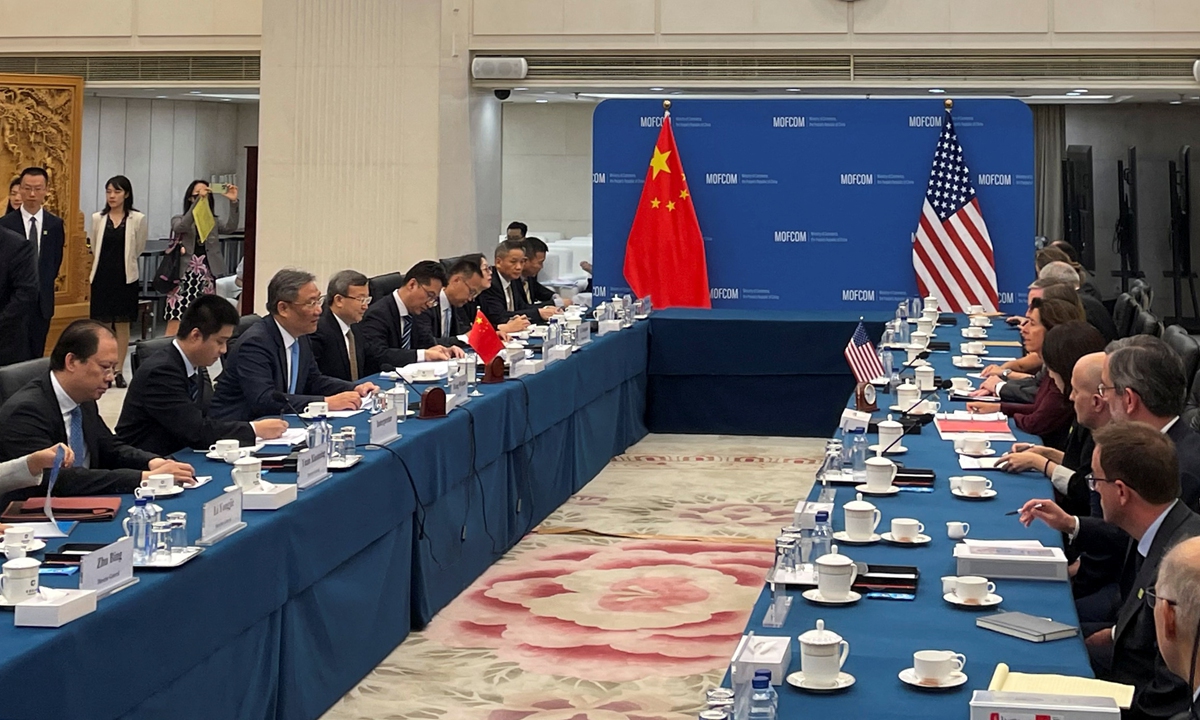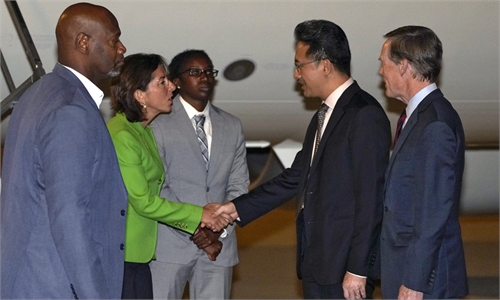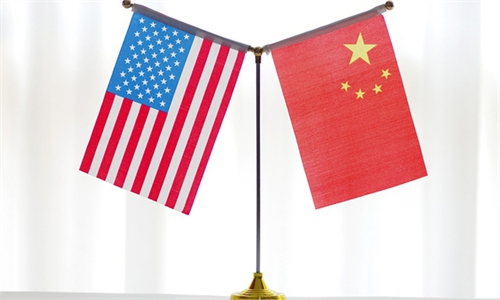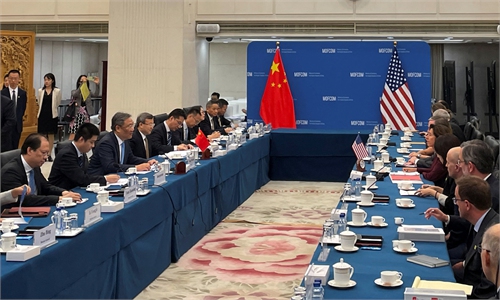US commerce chief hypes 'China threat' illusion, assaulting chip firms 'counterproductive'
Treating China as 'threat,' imposing more restrictions hasn’t worked and won't work: experts

Chinese Commerce Minister Wang Wentao meets with US Commerce Secretary Gina Raimondo in Beijing on August 28, 2023. Photo:IC
US Commerce Secretary Gina Raimondo's latest remarks that renewed the US illusion of the so-called China threat and attacked US chip companies that seek to continue doing business with China are counterproductive to the efforts from both sides of the Pacific Ocean to stabilize bilateral ties, Chinese experts said on Sunday.
Coming after recent high-level meetings and steps toward engagement have offered a much-needed sense of stability for businesses in both countries and the world at large, Raimondo's threat to "tighten" export controls against China "every day," if it materializes, could throw bilateral trade ties further into uncertainty, which won't bode well for the US, China or the entire world, they noted.
During a speech at a national defense forum in the US state of California on Saturday (US time), Raimondo called China "the biggest threat we've ever had" and said that "China is not our friend," according to Agence France-Presse (AFP).
Chinese experts refuted such unfounded allegations on Sunday.
"Considering recent efforts from both sides to stabilize ties, such remarks from a high-level US official like Raimondo are very inappropriate and show that some US officials are not making positive efforts to stop bilateral ties from deteriorating, nor are they trying to stabilize relations," Li Yong, a senior research fellow at the China Association of International Trade, told the Global Times on Sunday.
Li said that the so-called China threat theory is completely imagined by some US politicians in a bid to court support for their ill-intended attempts to contain China.
In her speech, Raimondo, who as the US commerce chief has already imposed restrictions on the sale of advanced chips and chipmaking tools to China, also attacked US chip firms that try to continue to do business with China within the limits of the US government's bans. She suggested that "losing revenue" because of the restrictions "is life" and "protecting our national security matters more than short-term revenue."
Also notably, the US commerce secretary issued a threat of more crackdowns against China.
"Such a threat, if it materializes, could cause volatility in China-US trade ties, or even the overall China-US bilateral relationship, and the US side will have to take full responsibility," Li said.
Mei Xinyu, a research fellow at the Chinese Academy of International Trade and Economic Cooperation, said that Raimondo's remarks and threats are "dumping cold water" over China-US trade ties, which have shown signs of improvement thanks to recent efforts from both sides.
In recent months, Chinese and US officials have met frequently in a bid to stabilize bilateral ties. Raimondo also made what she described as "a very successful and productive" trip to China in August, during which she publicly said that the China-US economic relationship is good for both countries and the world. Those senior-level official engagements culminated in a summit of China-US leaders in the US city of San Francisco in October, which offered a sense of stability in bilateral ties.
"I think the US side realizes that it needs China's help with a number of issues, including the US economy, which could face serious trouble in 2024 amid a presidential election; however, it also wants to keep cracking down on China," Mei said. "That shouldn't be a surprise for anybody."
While US officials and some media outlets have boasted about the performance of the US economy and painted the Chinese economy as "collapsing," many economists remain very cautious about the US economy's outlook in 2024, with some saying that a US recession is still very possible.
Although the US remains the world's most powerful country, it still needs to work with China, and whatever further crackdowns the US government threatens to make or makes, it won't stop China from developing itself, Mei said. "The past several years should offer enough proof for this," he said.
In recent years, the US has taken many steps to crack down on China in critical technological fields, including semiconductors. However, that didn't stop Chinese companies from making many breakthroughs, and some say it even accelerated Chinese companies' push for independent innovation.
Meanwhile, many US chipmakers have continued to do business with China, and others are seeking to do so, with some even trying to work around Washington's curbs to maintain their businesses.




